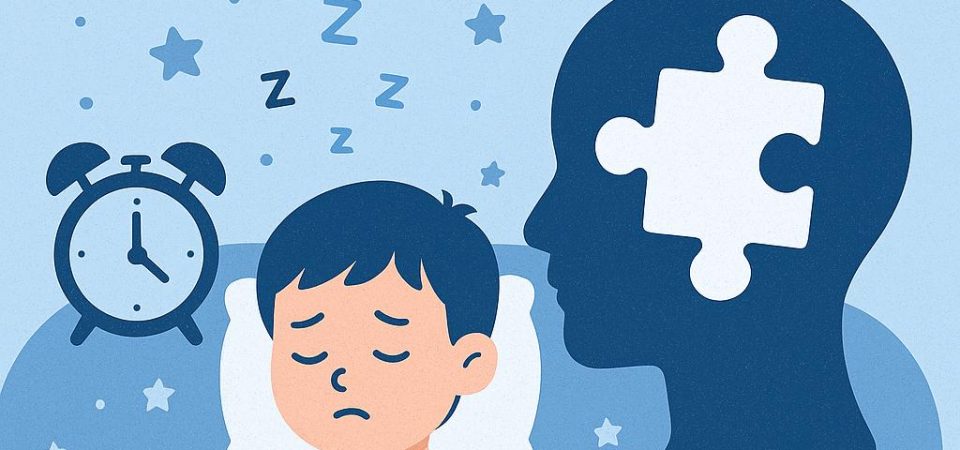Understanding the Connection Between Autism and Sleep Disorders
Individuals with autism spectrum disorder (ASD) often face a variety of challenges, one of which includes sleep disorders. Understanding the correlation between autism and sleep disturbances is crucial for caregivers, healthcare providers, and those affected by autism. With a comprehensive knowledge of the issues at hand, meaningful interventions can be devised to promote better health and well-being for autistic individuals.
Prevalence of Sleep Disorders in Autism
Research indicates that sleep issues are significantly more common in children and adults with autism compared to the general population. A substantial percentage of autistic individuals experience issues such as insomnia, difficulty falling asleep, frequent awakenings, or maintaining sleep. These issues are believed to stem from a combination of biological and environmental factors, each contributing uniquely to the sleep challenges faced by those on the autism spectrum.
Biological Factors
The neurodevelopmental differences inherent in autism may contribute to sleep-related challenges. There is evidence suggesting that people with autism may have abnormalities in the production of melatonin, a hormone that regulates sleep-wake cycles. Melatonin production and its cycle can be disrupted in autistic individuals, leading to difficulties in falling and staying asleep. Additionally, sensory sensitivities or irregularities in the brain’s areas responsible for sleep regulation may play a role. Research has also suggested that other neurotransmitter abnormalities in the brain might be partly responsible for these sleep issues.
Environmental Influences
Environmental factors can exacerbate sleep difficulties in those with autism. Sensory sensitivities may cause individuals to be more reactive to external stimuli such as noise or light, impacting their ability to fall or stay asleep. Moreover, it is well-documented that autistic individuals often thrive on routine, and disruptions to this routine can result in increased anxiety, subsequently leading to heightened sleep disturbances. The combination of a heightened sensory environment with a disrupted routine precludes many autistic individuals from experiencing restful, undisturbed sleep.
Impact of Sleep Disorders on Autism
Sleep disturbances can significantly affect an individual’s overall quality of life. In those with autism, inadequate sleep may exacerbate daytime behavioral challenges such as irritability, hyperactivity, and difficulty concentrating. It can also influence learning and social interactions, adding to the everyday challenges faced by individuals with autism and their families. Without proper sleep, individuals may struggle to manage daily activities, and this can profoundly affect their social relations and educational performance. Additionally, poor sleep can increase the risk of other health issues, further complicating the daily life of someone with autism and their caregivers.
Approaches to Managing Sleep Disorders
For caregivers and healthcare providers, addressing sleep disorders in individuals with autism involves a combination of behavioral and medical strategies. It is important to tailor these strategies, taking into account the unique challenges and needs of the individual.
Behavioral Interventions
Behavioral approaches may include creating a consistent bedtime routine, optimizing the sleep environment to reduce sensory triggers, and implementing relaxation techniques as part of the nighttime regimen. Consistent bedtimes, along with calming activities leading up to sleep, can promote a stable sleep schedule. Optimizing the environment might involve employing blackout curtains, sound machines, or other tools aimed at reducing sensory overload. These strategies aim to promote better sleep hygiene, thereby improving sleep quality. Engaging the individual in the planning and implementation processes may also empower them to take greater ownership and control over their sleep patterns.
Medical Treatments
In some cases, medical interventions may be necessary. Melatonin supplements are a common treatment for sleep disorders in autistic individuals, as they can help regulate the body’s sleep-wake cycle. However, it’s essential to consult with a healthcare professional before starting any medication. Besides melatonin, other medications might be prescribed based on the specific needs of the individual, but they should be considered only after non-pharmacological interventions have proven to be insufficient. Ongoing communication with healthcare providers ensures that treatments are tailored and adjusted to the needs of the individual over time.
Conclusion
The correlation between autism and sleep disorders highlights the need for awareness and proper management strategies. By employing both behavioral and medical approaches, it is possible to improve sleep quality for those with autism, ultimately enhancing their overall well-being. The development of tailored strategies that take into account the individual’s specific needs and challenges is key to effective management. Collaboration among caregivers, healthcare providers, and the individuals with autism themselves is essential to mitigating the impact of sleep disorders and improving the quality of life of those on the autism spectrum. For further reading on sleep studies in autism, visit this resource.
The ongoing research and understanding of how sleep disorders intersect with autism remain crucial as this knowledge can pave the way for innovative interventions and support mechanisms that holistically address the needs of autistic individuals and their families. The growing awareness and dedication to tackling these challenges are promising steps toward a future where sleep disturbances no longer hinder the potential and resilience of individuals with autism.
